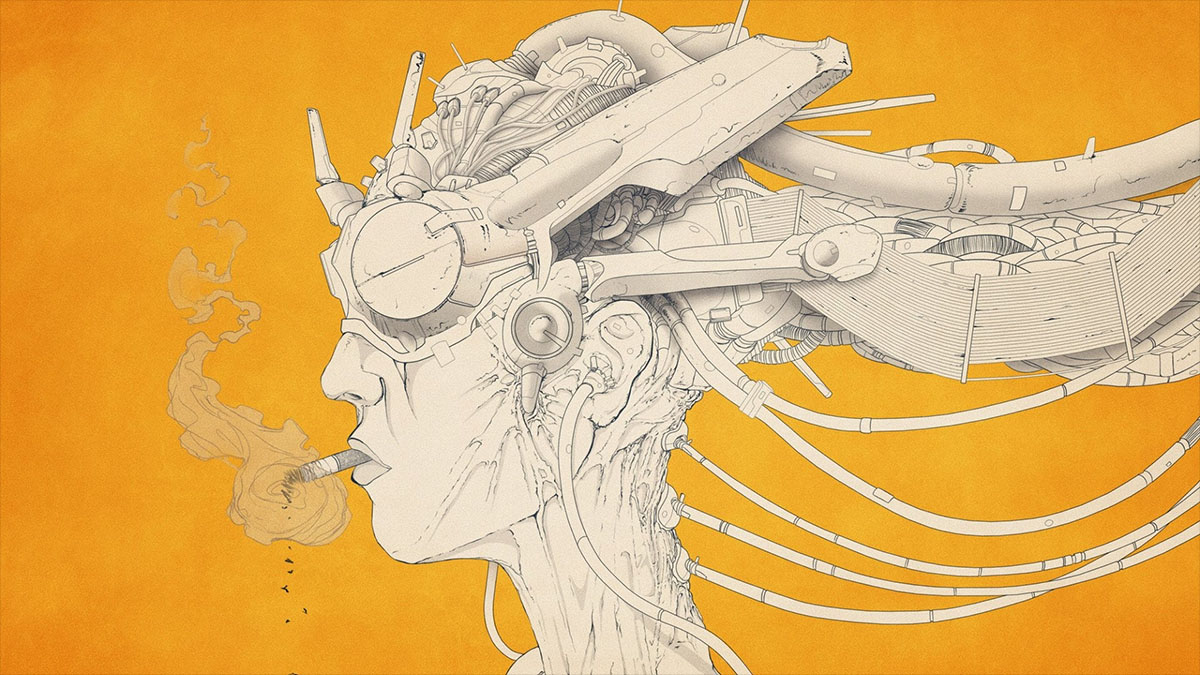ray kurzweil’s digital religion

Dan Lyons of the Fake Steve Jobs blog fame, recently described his encounter with Ray Kurzweil in a piece on Newsweek.com. Usually, when Lyons has a good idea of what he thinks on a particular topic, he feels free to let it rip. But here, it seems that he’s genuinely bewildered what to make of the futurist who doesn’t just think that one day we’ll all be immortal bits of information integrated with computer circuitry, he thinks it will happen in just 36 years and that he found the recipe for immortality. The money quote from this column? “Ray is going through the single most public midlife crisis that any male has ever gone through.” Ouch. That’s harsh.
Then again, how else would you categorize a 61 year old man who takes 150 supplements a day because he believes it will extend his lifespan just enough for his mind to be uploaded into a machine? How should we take his ideas of resurrecting his father from exhumed DNA and artificial intelligence chips? I understand that it’s normal to be afraid of death. That fear is part of our self-preservation mechanism. But to try and concoct an elaborate future which fuses experimental computer science with New Age esoterica about transcendence in the pursuit of ultimate knowledge? Isn’t that a tad extreme?
Since Kurzweil is an accomplished computer expert, he’s not without adherents. One of them just happens to be Peter Diamandis, founder of the X-Prize Foundation and the catalyst for Singularity University, a school for the followers of Kurzweil’s theories to hear more fanciful predictions about the future and how their immortality is right around the corner, like some sort of digital Rapture. Diamandis reportedly takes 40 supplements over the course of his day and says he expects to live for several hundred years. Why? Because according to him, there are other species who live over 100 years so there should be no reason why humans can’t do the same.
And of course, there is. Humans are very different from trees and long lived reptiles. We have different genetic packages, different metabolic rates, different energy requirements and different wear and tear on our bodies. We can live between 120 and 130 years at most, even if we eliminate all disease. Our bodies will just break down. I realize there have been claims of people who lived to be 140 and even 160 here and there, but keep in mind that record keeping even a hundred years ago wasn’t what it is today and ages can easily be adjusted by a decade or two without anyone being the wiser. We could extend that with radical new technologies, but the odds of vitamins and supplements outright doubling our maximum theoretical lifespans are slim.
Probably the most interesting criticism of Kurzweil’s ideas though, has to come from those who scold him for refusing to accept the possibility that one day, intelligent machines a million times smarter then humans will look at us with disgust and wipe us out Terminator style. Or at least use us for food like the machines of the Matrix. Yes, that’s what we should really be worried about in the near future. A dystopian world ruled by robots with an average IQ of 100 million compared to today’s insectoid machines which can barely figure out how to move outside of a box. The idea that as long as we keep upping processing power, computers will just wake up and become self-aware all on their own simply won’t work. And this idea of malevolent robotic overlords is more like a science fiction B movie than anything even remotely ground in fact. I suppose if machines were programmed to kill by a mad programmer or bugs in military robots’ code turned them against us, a similar scenario might be plausible. But sapience coming from the digital aether? I don’t think so.





